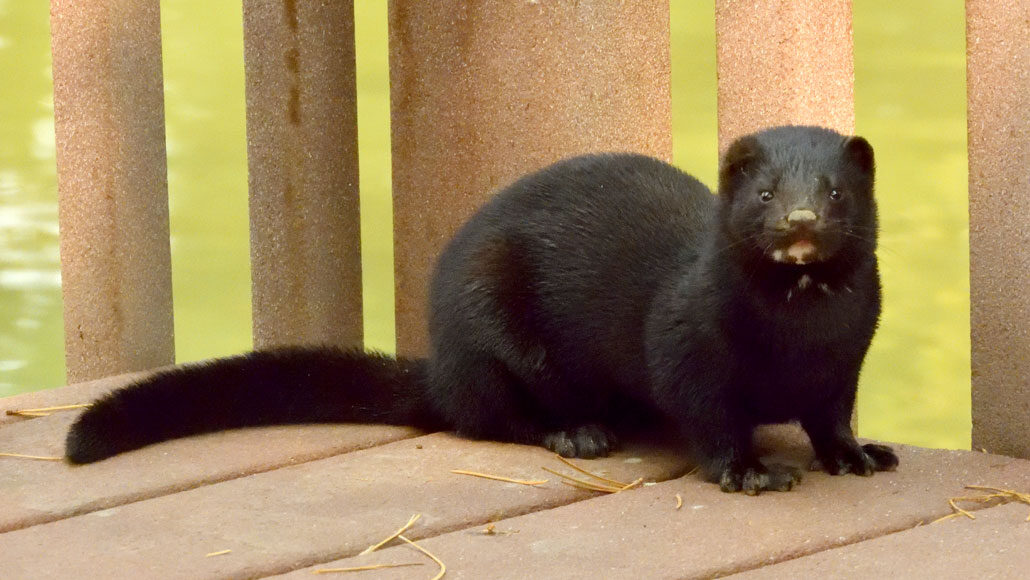agriculture: The growth of plants, animals or fungi for human needs, including food, fuel, chemicals and medicine.
antibodies: Any of a large number of proteins that the body produces from B cells and releases into the blood supply as part of its immune response. The production of antibodies is triggered when the body encounters an antigen, some foreign material. Antibodies then lock onto antigens as a first step in disabling the germs or other foreign substances that were the source of those antigens.
coronavirus: A family of viruses named for the crown-like spikes on their surface (corona means “crown” in Latin). Coronaviruses cause the common cold. The family also includes viruses that cause far more serious infections, including SARS.
COVID-19: A name given to the disease that caused a massive global outbreak. It first emerged in December 2019 and is caused by a new coronavirus known as SARS-CoV-2. Symptoms include pneumonia, fever, headaches, blood clots and trouble breathing.
develop: To emerge or to make come into being, either naturally or through human intervention, such as by manufacturing.
evolve: (adj. evolving) To change gradually over generations, or a long period of time. In living organisms, such an evolution usually involves random changes to genes that will then be passed along to an individual’s offspring. These can lead to new traits, such as altered coloration, new susceptibility to disease or protection from it, or different shaped features (such as legs, antennae, toes or internal organs). Nonliving things may also be described as evolving if they change over time. For instance, the miniaturization of computers is sometimes described as these devices evolving to smaller, more complex devices.
genetic: Having to do with chromosomes, DNA and the genes contained within DNA. The field of science dealing with these biological instructions is known as genetics. People who work in this field are geneticists.
infection: A disease that can spread from one organism to another. It’s usually caused by some type of germ.
mutation: (v. mutate) Some change that occurs to a gene in an organism’s DNA. Some mutations occur naturally. Others can be triggered by outside factors, such as pollution, radiation, medicines or something in the diet. A gene with this change is referred to as a mutant.
outbreak: The sudden emergence of disease in a population of people or animals. The term may also be applied to the sudden emergence of devastating natural phenomena, such as earthquakes or tornadoes.
potent: An adjective for something (like a germ, poison, drug or acid) that is very strong or powerful.
SARS-CoV-2: A coronavirus that emerged in Wuhan, China, in late December 2019. It would go on to cause widespread — and sometimes lethal — disease throughout China and many other nations. Its name reflects its close similarity to the original coronavirus known as SARS (for severe acute respiratory syndrome). That SARS virus sparked a global outbreak of disease in 2003.
strain: (in biology) Organisms that belong to the same species that share some small but definable characteristics. For example, biologists breed certain strains of mice that may have a particular susceptibility to disease. Certain bacteria or viruses may develop one or more mutations that turn them into a strain that is immune to the ordinarily lethal effect of one or more drugs.
survey: To view, examine, measure or evaluate something, often land or broad aspects of a landscape.
transmit: (n. transmission) To send or pass along.
vaccine: (v. vaccinate) A biological mixture that resembles a disease-causing agent. It is given to help the body create immunity to a particular disease. The injections used to administer most vaccines are known as vaccinations.
virus: Tiny infectious particles consisting of RNA or DNA surrounded by protein. Viruses can reproduce only by injecting their genetic material into the cells of living creatures. Although scientists frequently refer to viruses as live or dead, in fact no virus is truly alive. It doesn’t eat like animals do, or make its own food the way plants do. It must hijack the cellular machinery of a living cell in order to survive.








